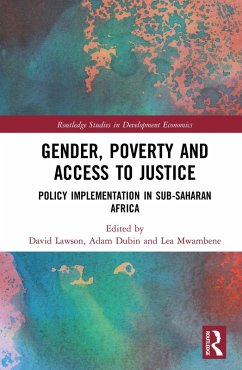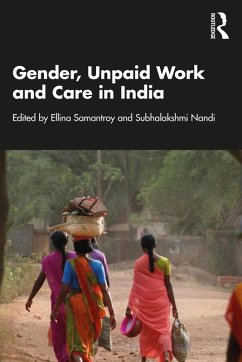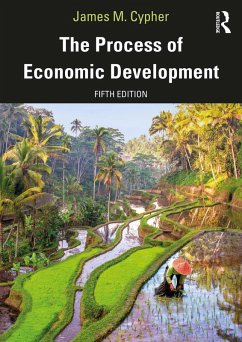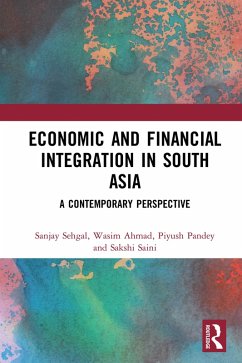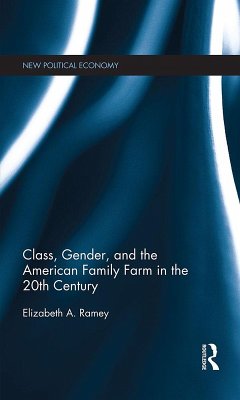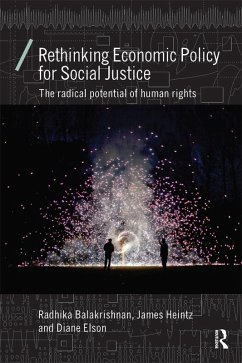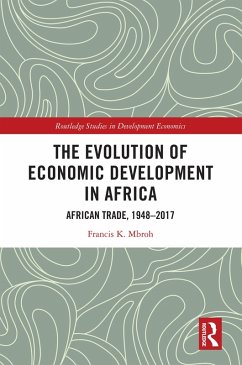
Gender, Poverty and Access to Justice (eBook, PDF)
Policy Implementation in Sub-Saharan Africa
Redaktion: Lawson, David; Mwambene, Lea; Dubin, Adam
Versandkostenfrei!
Sofort per Download lieferbar
41,95 €
inkl. MwSt.
Weitere Ausgaben:

PAYBACK Punkte
21 °P sammeln!
Access to justice is a fundamental right guaranteed under a wide body of international, regional and domestic law. It is also an essential component of development policies which seek to adequately respond to the multidimensional deprivations faced by the poor in order to improve socio-economic well-being and advance the progress of the Sustainable Development Goals. Women and children make up most of Africa's poorest and most marginalized population, and as such are often prevented from enforcing rights or seeking other recourse.This book explores and analyzes the issue of gendered access to ...
Access to justice is a fundamental right guaranteed under a wide body of international, regional and domestic law. It is also an essential component of development policies which seek to adequately respond to the multidimensional deprivations faced by the poor in order to improve socio-economic well-being and advance the progress of the Sustainable Development Goals. Women and children make up most of Africa's poorest and most marginalized population, and as such are often prevented from enforcing rights or seeking other recourse.
This book explores and analyzes the issue of gendered access to justice, poverty and disempowerment across Sub-Saharan Africa (SSA), and provides policy discussions on the integration of gender in justice programming. Through individual country case studies, the book focuses on the challenges, obstacles and successes of developing and implementing gender focused access to justice policies and programming in the region.
This multidisciplinary volume will be of interest to policy makers as well as scholars and researchers focusing on poverty and gender policy across law, economics and global development in Sub-Saharan Africa. Additionally, the volume provides policy discussion applicable in other geographical areas where access to justice is elusive for the poor and marginalized.
This book explores and analyzes the issue of gendered access to justice, poverty and disempowerment across Sub-Saharan Africa (SSA), and provides policy discussions on the integration of gender in justice programming. Through individual country case studies, the book focuses on the challenges, obstacles and successes of developing and implementing gender focused access to justice policies and programming in the region.
This multidisciplinary volume will be of interest to policy makers as well as scholars and researchers focusing on poverty and gender policy across law, economics and global development in Sub-Saharan Africa. Additionally, the volume provides policy discussion applicable in other geographical areas where access to justice is elusive for the poor and marginalized.
Dieser Download kann aus rechtlichen Gründen nur mit Rechnungsadresse in A, B, BG, CY, CZ, D, DK, EW, E, FIN, F, GR, HR, H, IRL, I, LT, L, LR, M, NL, PL, P, R, S, SLO, SK ausgeliefert werden.




